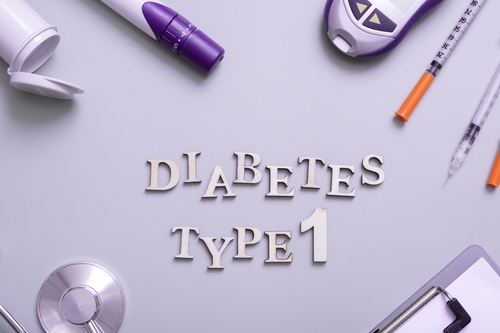Dr. Gregg Sylvester, Chief Medical Officer of Seqirus, Discusses the Importance of Flu Vaccines
By Rob Dillard - Last Updated: May 10, 2024DocWire News recently spoke with Dr. Gregg Sylvester, Chief Medical Officer of Seqirus, one of the world’s largest manufacturers of influenza vaccines.
DocWire News: Can you talk to us a little bit about Sequirus the the vaccines it produces?
Dr. Gregg Sylvester: Well yeah. So Seqirus is a fairly new company. We’ve been around for maybe about five years now. We are a combination of an Australian company, CSL, and Novartis. And when we put those two together, we focused predominantly on flu. So we have a number of different flu vaccines and we’re a global leader, as you pointed out. We manufacture them in the United States, in the United Kingdom, and Australia. And so it’s an exciting time to be in this world of influenza.
DocWire News: How has the efficacy of these vaccines been assessed?
Dr. Gregg Sylvester: Well we need to get regulatory approval to get licensure. And we do it in one of two ways. One is that we vaccinate a whole group of people with our vaccine and then either with a placebo or a different influenza vaccine. And then what we can do is we can just measure their antibodies. That’s an immunogenicity study. We always add safety to those so that we’re finding out not only how is there a difference in the antibody response to our vaccines versus a placebo or another vaccine, as well as are there any adverse events?
The other one is an efficacy trial, the way you pointed out, where we have clinical endpoints. And so what we actually do is that we vaccinate one group and not the other or with a different vaccine. We follow them for safety. Both trials will have safety in it, but we’ll look at clinical outcomes. Who ends up getting flu, who gets a lab confirmed influenza, and then we compare the data between the active group, our vaccine, versus the other and get an efficacy trial. That’s how we license our vaccines. The data that we may discuss in a few minutes is really real-world data. Real-world evidence where we’re actually looking what’s happening when it goes out into the United States and does it work as well as we claimed it did when we asked for licensure.
DocWire News: Are there any side effects to these vaccines?
Dr. Gregg Sylvester: Yeah. So I will say that we talk about local side effects and we talk about systemic side effects, right? The local side effects are typically where your arm is sore after you get it, you get a redness or swelling. Those are not atypical. When you get the systemic ones, it could be fever, it could be fatigue, could be headache. And typically what that’s telling me as a physician that my immune system, or your immune, whoever got the vaccine, is actually gearing up against the antigen that we’ve done. Don’t forget, vaccines are a surrogate for natural infection. We’re trying to give you the vaccine to protect you from the natural. So we still need to create those antibodies. And so our immune system needs to gear up. So it’s not unusual in any vaccine, whether it’s ours, whether it’s another influenza, or whether it’s any of the childhood or adult vaccines out there, that our immune system starts to gear up and we get an elevated temperature, we get a little bit tired, we get a headache, and that’s not bad. I would say, and as a physician, whenever you get a vaccine, you stay with that healthcare provider or within that healthcare organization for the next 15 to 30 minutes to make sure that there’s no acute adverse event. And so that’s important, but we saw an extremely rare, that’s almost unheard of. The most of them are mild soreness and a little bit of elevated temperature.
DocWire News: Is flu a bigger concern now given the COVID-19 pandemic?
Dr. Gregg Sylvester: Well it’s a really important question. So what we do know is up until a month or two ago, we had no prevention for COVID. Now there are vaccines out there, but we did have a preventive measure for influenza. We had a flu vaccine. So public health agencies around the globe and leading that charge was the Centers for Disease Control and Prevention here in the US to say, “Let’s get vaccinated for a number of reasons.” Number one, can you imagine being co-infected with flu and COVID? I don’t want anyone to do that. So if we have a vaccine for flu, then get flu so that it reduces your chance of getting infected. Number two, we know that our hospitals are being overrun by COVID. The last thing they need is to get a flurry of flu cases coming in to compete with those incredibly important hospital beds that people with COVID are using. So the idea was that get vaccinated this year, so that in fact you can reduce your risk for flu like you do every year, but it’ll also help the health care system manage the COVID pandemic.
DocWire News: What do you say to people who are hesitant about getting the flu vaccine?
Dr. Gregg Sylvester: Yeah. So my experience, when I was practicing clinical medicine, people just didn’t dislike for the fact of disliking. They were concerned. They’re concerned about their health, they’re concerned about their children’s health, they’re concerned, and I am too and I’m sure so are their healthcare providers. Vaccines have been around for an awful long time. They’ve been tested throughout. They are approved by the Food and Drug Administration. They are safe. They’re not without risk. When I take aspirin, there’s a risk involved, but the benefit far outweighs the risk. So I would recommend that they talk to their healthcare provider, they get credible information, and I think there’s some great information at the cdc.gov website and I would recommend that people get vaccinated, but your audience may be healthcare providers and they know all that already.







 © 2025 Mashup Media, LLC, a Formedics Property. All Rights Reserved.
© 2025 Mashup Media, LLC, a Formedics Property. All Rights Reserved.